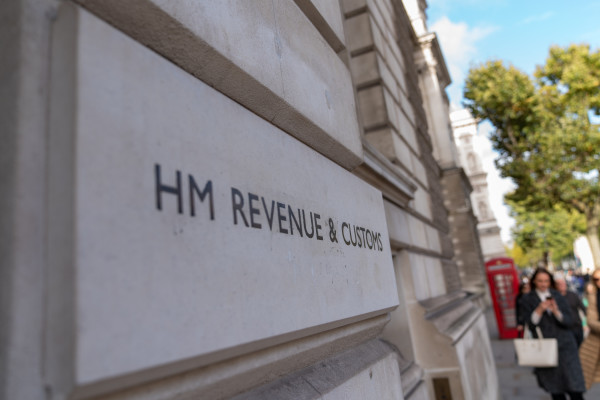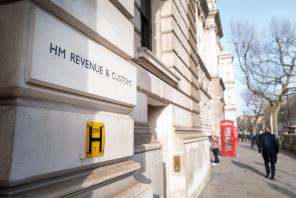

Since the introduction of pensions freedoms in 2015, savers have now reclaimed £925mn in overtaxation on pensions withdrawals.
Under current HMRC practice, when an individual first takes a lump sum from a defined contribution pension, tax is deducted at source.
However, instead of being deducted at the individual’s normal income tax rate, an emergency tax rate is used.
This is in case the individual were to make multiple withdrawals over the year which collectively took them into higher tax bands.
Individuals then have to fill in one of three different forms to claim back the overpaid tax.
Steve Webb, partner at LCP said: “It remains a quiet scandal that tens of thousands of people every year have to fill in forms to get back tax from HMRC which they should never have had to pay in the first place.
“It may be convenient for HMRC to overtax people and then force them to fill in forms to get their money back, but it is hardly putting the customer first.”
New figures revealed that more than £33mn was repaid to almost 10,000 people overtaxed on pension withdrawals in July, August and September, with an average reclaim of £3,324.
Adding together all of the quarterly figures since 2015 shows that the total refunded now stands at £925mn.
This is in respect of 270,000 forms, though it is possible that some individuals may have filled in more than one form.
Webb said a much simpler system would be for tax to be deducted at the basic rate with adjustments for those who may pay tax at a different rate, including through the annual tax return process.
“It is time for this scandal to end,” he said.
He argued that the £925mn is likely to be an understatement of the full scale of the problem.
LCP said no figures are available for the amounts refunded through this route, but it is likely that the total amount of overpayment will be over £1bn since the system began.
A HMRC spokesperson said: “Anyone who ends up paying more tax than they should due to an emergency tax code being applied will automatically be repaid at the end of the year.
“Individuals have the option of claiming back any overpayment earlier if they wish. Ultimately, nobody will overpay tax as a result of taking advantage of pension flexibility.”
FTAdviser understands that where an individual does not apply directly to HMRC for a refund, HMRC will work out their annual tax bill at the end of the tax-year as part of the usual reconciliation exercise.
Cost of living crisis strain
AJ Bell’s head of retirement policy Tom Selby, said: “While those who take a regular income or make multiple withdrawals during the tax year should be put right automatically by HMRC, anyone who makes a single withdrawal will likely be left out of pocket.
“The damage has been colossal, with a staggering £925mn reclaimed through the official channels so far.”
Selby explained that millions of savers who have accessed their retirement pot in line with the rules rightly expect the government to take the correct amount of tax from their withdrawal.
“However, HMRC’s approach to the taxation of pensions withdrawals continues to be a quiet scandal that risks exacerbating the cost-of-living crisis for tens of thousands of savers,” he added.
“As inflation tightens its grip on UK households, forcing many to turn to their retirement pots to make ends meet, the problem will likely get worse over the next 12 months.”
It is possible to get money back within 30 days, but only if you fill out one of three HMRC forms to reclaim the money.
“If you don’t, you are left relying on the efficiency of HMRC to repay you at the end of the tax year,” he said.
“This approach was bad enough before, but with inflation spiking and millions of Brits struggling to make ends meet, it feels particularly cruel.”
Like Webb, Selby argued that the true figure is likely much higher as many of those who have been overtaxed – in particular people on lower incomes who are less familiar with the self-assessment process - will not fill in one of these forms.
Meanwhile, Jon Greer, head of retirement policy at Quilter, said the pension tax overpayment reclaims remained steadily high in the third quarter of 2022.
It was down slightly on Q2’s £33.7mn but still 50 per cent higher than Q1 2022.
“The number of claims forms processed also remained very high, highlighting a sustained need for people to access their pension funds as the cost-of-living crisis takes a firmer grip on their everyday finances,” he said.
“Despite so many people needing quick access to their funds, this clunky system results in a drawn-out process that means people have to wait far longer than they may have anticipated to receive the full amount they expected.”
Greer added: “The cost of living crisis is now putting a real strain on people’s finances, and the number of people needing to access their pension savings to help them get by will likely continue to rise in the coming months.”
Dissecting the figures, Greer explained that in the past year alone – Q4 2021 to Q3 2022 - pension tax overpayment reclaims totalled £131.3mn, a considerable increase compared to the £126.6mn the year prior as more people have been forced to dip into their pension pots.
He explained that the trend in these figures only shows withdrawals including a taxable element, and therefore will not capture those that took their tax free cash alone.
“Given the current economic circumstances, this emergency tax situation will be particularly frustrating for people trying to access their funds quickly to ensure they can pay for rising energy bills and other everyday costs – particularly if they don’t understand why it has happened,” he said.
“The cost of living crisis will no doubt result in an increase in withdrawals, and a subsequent increase in the number of people left disappointed that they have to make a reclaim at a time when they may urgently need the money.”
sonia.rach@ft.com
What do you think about the issues raised by this story? Email us on FTAletters@ft.com to let us know



